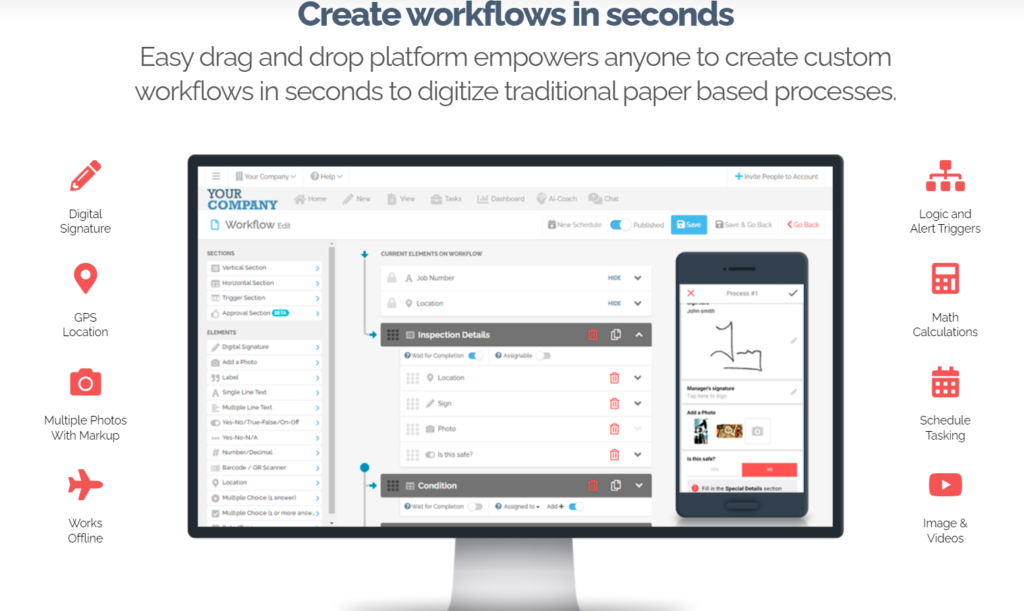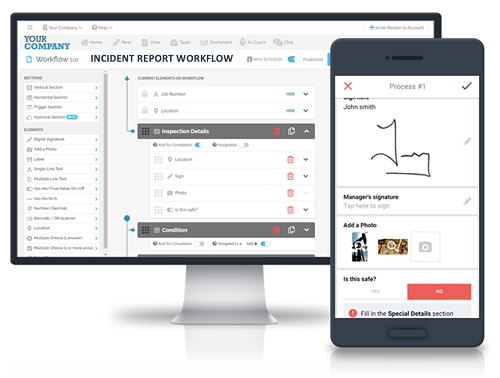The oil and gas industry is one of the most hazardous sectors, necessitating stringent safety protocols. Among these protocols, NFPA 72 stands out as a critical standard. But what exactly is NFPA 72 in the oil and gas industry? This article delves into the significance of NFPA 72, its applications, and how digital workflows like FAT FINGER can enhance compliance and safety.
Understanding NFPA 72
NFPA 72, also known as the National Fire Alarm and Signaling Code, is a comprehensive standard that outlines the installation, performance, and maintenance of fire alarm systems. It is published by the National Fire Protection Association (NFPA) and is widely recognized across various industries, including oil and gas.
Key Components of NFPA 72
- Fire Alarm Systems
- Emergency Communication Systems
- Supervisory Signaling Systems
- Public Emergency Alarm Reporting Systems
In the oil and gas industry, NFPA 72 is crucial for ensuring the safety of personnel and assets. The standard provides guidelines for the design, installation, and maintenance of fire alarm systems, which are essential for early detection and response to fire incidents.
The Importance of NFPA 72 in the Oil and Gas Industry

The oil and gas industry is fraught with risks, including fires, explosions, and hazardous material releases. NFPA 72 plays a vital role in mitigating these risks by ensuring that fire alarm systems are reliable and effective.
Case Study: The Deepwater Horizon Incident
The Deepwater Horizon incident in 2010 serves as a stark reminder of the importance of robust fire alarm systems. The explosion and subsequent fire resulted in the loss of 11 lives and significant environmental damage. A well-implemented NFPA 72-compliant system could have potentially mitigated the impact of this disaster.
Challenges in Implementing NFPA 72
Despite its importance, implementing NFPA 72 in the oil and gas industry comes with its own set of challenges. These include:
- Complexity of Operations
- Remote Locations
- High Costs
- Regulatory Compliance
These challenges necessitate a robust solution that can streamline compliance and enhance safety. This is where digital workflows like FAT FINGER come into play.
How FAT FINGER Enhances NFPA 72 Compliance

FAT FINGER is a digital workflow platform designed to simplify complex processes and enhance safety. It offers a suite of powerful safety checklists that can help oil and gas companies comply with NFPA 72 and other safety standards.
Take 5 Safety
The Take 5 Safety checklist is a quick and effective tool for identifying hazards before starting a task. It prompts workers to take five minutes to assess their environment, ensuring that all potential risks are identified and mitigated.
Near Miss Reporting
Near Miss Reporting is crucial for identifying and addressing potential hazards before they result in incidents. FAT FINGER’s Near Miss Reporting checklist allows workers to easily report near misses, ensuring that corrective actions are taken promptly.
Job Hazard Analysis
The Job Hazard Analysis (JHA) checklist helps workers identify and control hazards associated with specific tasks. By breaking down tasks into individual steps and assessing the risks associated with each step, the JHA checklist ensures that all potential hazards are addressed.
Risk Assessment
Risk Assessment is a critical component of NFPA 72 compliance. FAT FINGER’s Risk Assessment checklist allows workers to systematically evaluate risks and implement appropriate control measures, ensuring a safer work environment.

Incident Reporting in the Workplace
Incident Reporting is essential for tracking and addressing safety incidents. FAT FINGER’s Incident Reporting checklist streamlines the reporting process, ensuring that all incidents are documented and investigated thoroughly.
Journey Report
The Journey Report checklist helps track the safety of personnel during transportation. It ensures that all safety protocols are followed, reducing the risk of incidents during transit.
Conclusion
NFPA 72 is a critical standard in the oil and gas industry, ensuring the reliability and effectiveness of fire alarm systems. However, implementing NFPA 72 can be challenging due to the complexity of operations, remote locations, and high costs. Digital workflows like FAT FINGER offer a robust solution to these challenges, providing powerful safety checklists that enhance compliance and safety.
By leveraging FAT FINGER’s digital workflows, oil and gas companies can streamline their safety processes, ensuring that they comply with NFPA 72 and other safety standards. This not only enhances safety but also reduces costs and improves operational efficiency.
Ready to enhance your NFPA 72 compliance? Create a safety workflow for free on FAT FINGER or request a demo today!

